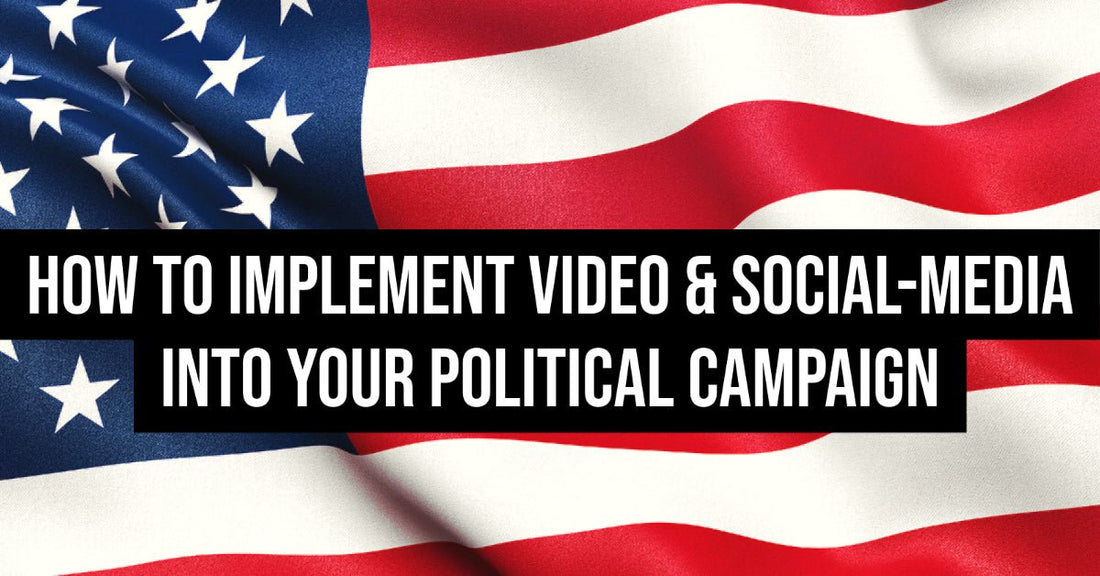WRITTEN BY: ZACH CHAMP
Connect with me on LinkedIn & Instagram!
(Originally Published Sep 2020 on Washington Digital Media)
![]()
THE ROLE OF MEDIA IN POLITICS
The traditional forms of media for the longest time were considered to be radio, television, newspapers, magazines, and other printed publications.

With the invention of the internet during the turn of the century, media transformed to reflect new technology.
Today media also encompasses “New Media” representing the social media platforms that have emerged with the creation of the internet such as Facebook, YouTube, and Twitter.

“New Media” platforms like Facebook combine information and communication in a way that allows people to become more active participants in politics.
Social media let’s like-minded individuals meet and organize themselves in online communities that can coordinate their efforts to achieve political change and momentum.

The media has always played an important role in politics and elections.
Media has conventionally served as a vanguard for the public, as a symbolic “eyes and ears” between the government and its constituents.
In America, the role of the media has been to act as a free press. Its job has always been to hold government accountable, to inform and educate citizens about important issues and news related events, and to connect people with each other.

Cable news and television have dominated the media’s presence in politics for a long time.
Until as early as 2000, most political campaigns relied on using television commercials that would run for hours on popular TV channels like ABC, NBC, and Fox.
Another important tactic that politicians would rely on during election season would be direct mail. With direct mailing, politicians would mail printed fliers, booklets, magazines, etc that would promote their campaigns and address key issues.
For a long time, standard forms of advertising were very expensive and cost-prohibitive.
Politicians that wanted a serious chance at winning elections had to have large campaign marketing budgets. This often required fundraising through donations provided by corporate donors and political action committees.
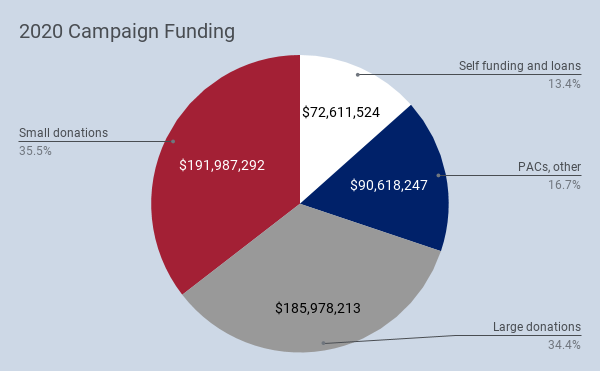
Candidates running grassroots campaigns discovered this was practically a show-stopper because there was no way for them to compete with corporate influence and money.
However, the advent of new technology has changed the game and political landscape. Where once before it was impossible to do so, now it is possible to reach and influence millions of people simply with access to a personal computer and internet!
In 2005 and 2006 smartphones emerged on the scene and became widespread throughout culture and society.

Before this most cell phones were simple flip phones with basic cameras that could take low-quality and low-resolution photos. The new smartphones had more advanced cameras and features, including increased computing power which allowed users to download and use mobile applications.
President Obama was one of the first candidates to use the internet to start an effective campaign that reached both grassroots populations and corporate donors.
His 2008 presidential election has become a widely studied example of effective presidential campaigning.
Politicians regularly rely on the internet to reach supporters and advocate their issues, and to collect campaign donations versus the traditional method of asking for checks via mail.

Now donations can be made with the click of a button and at the convenience of your phone in the palm of your hand!
![]()
HOW VIDEO CAN HELP YOUR POLITICAL CAMPAIGN
Videos can play a strategic and influential role in your political campaign. Failure to utilize and implement video effectively can result in a loss on election day!
Video at its core is a tool for story-telling. With a compelling video, you can emotionally connect with your voters and engage with them directly. People connect with stories.
As a politician, you want to use video to inform voters of your position on important key issues. In addition, you want to use video to demonstrate your sympathy and solidarity with constituents and their daily struggles.
Video gives you a chance to display how authentic you are as a candidate by focusing on the people who matter and their stories… the voters!

Luckily, video these days is more accessible than ever before! Almost everyone has a smartphone, which includes a decent camera capable of recording high-quality footage.
Not only can people record footage with their phones, but they can also easily edit and publish this footage all with the convenience of mobile apps.
The wide-spread proliferation of smartphones has resulted in platforms like Facebook and YouTube offering new features like live-streaming where you can record and upload videos directly from your phone to thousands of people in real-time.

YouTube is the world’s second most popular website (with Google being the first) averaging billions of viewers each month.
If you are running a political campaign, you absolutely must create video content for YouTube. YouTube reaches more 18–34 year-olds alone than any other US television network.
Around 3/4ths of US Adults use YouTube daily to watch video content for an average of 30 minutes minimum. Most Americans use YouTube and Facebook to get news and to learn about new topics.
Just think about all the social media influencers that are constantly filming themselves and making content!
As a political candidate, you too will need to focus on creating content regularly so that you can effectively capture your constituents’ attention.
Politicians need to create video content to inform and educate their voters and constituents about relevant issues.
People need to know what is going on in the town hall, city council, or state legislature, and it is your duty to inform them!
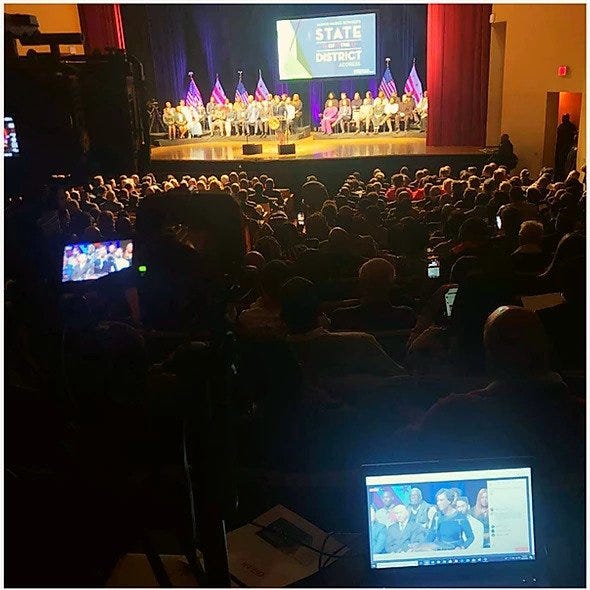
By using video content you can get information straight to your voters and constituents every day, especially by using your smartphone to live-stream.
Another strategy you may want to utilize is collaborating with other content creators to promote your electoral campaign.
This can be question and answer format interviews on online podcasts or radio shows, it can be short documentaries or video profiles for YouTube, or it can be actual endorsements from celebrities and online influencers.

Candid interviews can be a great way to allow political candidates a chance to demonstrate their authenticity about important issues. It can let voters and constituents see your emotional response to the topics that matter most to them and help them rally and gravitate towards your campaign to ultimately vote for you.
Make sure you carefully consider the timing of your videos. Specialize in both short and long-form content. Use videos around key campaign dates such as voter registration deadlines, election day, legislative meetings, etc. to organize and rally your supporters.
Utilizing video correctly can essentially guarantee re-election for politicians at all levels of government!
![]()
WHAT ABOUT SOCIAL MEDIA?
In today’s world, everyone uses social media to communicate with friends and family, to receive news and information, and to entertain and express themselves.

As a political candidate, you should know that nearly 70% of all Americans have Facebook accounts and that ¾ of all Facebook users log in and use the service daily. Facebook is such an important information source for some people that 30% of American adults rely on Facebook alone for news.
Without a doubt, social media plays a significant part in politics these days. Just consider Trump and his constant use of Twitter.
As a political candidate, you need to understand that your political campaign is just like any other business or brand.

You will need to use the same marketing and advertising techniques that businesses rely on to promote products and services.
Remember, as an elected representative you are providing a service- which is to address the problems of constituents and provide real solutions!
Does your political campaign highlight these solutions? Social media can be a means by which you can reach out and stay connected with constituents and voters, and successfully engage and create meaningful relationships with them.
When you begin your political campaign, your first order of business should be to assemble a social media team to help you successfully promote your campaign online.
Social media management can be a time consuming and labor-intensive task, and delegating this work to volunteers or paid staff can keep time open in your busy schedule to focus on other areas of your campaign.

The most key and important cardinal rule of managing your social media account for a political campaign is keeping your political account separate from your account.
You should never use a personal Facebook or YouTube account to conduct your campaign.
When you begin your campaign, you will need to create brand new social media accounts to use for your election efforts.
Keep in mind that because of recent regulations, when you create your Facebook campaign page you will need to verify your account as an official political campaign.

Typically this includes enabling two-factor authentication, confirming your identity and location, as well as placing “Paid For By” disclaimers on your political ads. Facebook also requires that all political ads be uploaded to a publicly accessible Ad Library for up to 7 years.
More information about Facebook’s Political Ad and Political Pages policies can be found here: https://www.facebook.com/gpa/advertising
When you are assessing your political campaign’s social media strategy you need to have an understanding of how Facebook, Instagram, and YouTube collects data from users and how this data can be viewed with insight and analytical tools.
Social media data is a treasure trove of wealth for political campaigns. Demographic information pulled from social media data can help politicians laser in on constituent’s primary issues of concern by analyzing trending keywords and topics as well as individual browsing behavior.
Tools like FB Audience Insights can give you a complex analysis of who visits and engages with your political page.
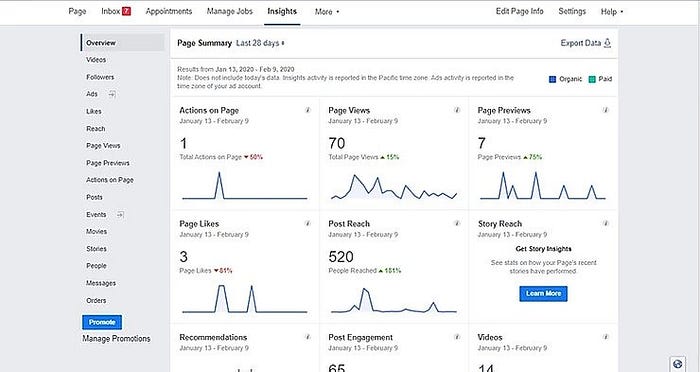
In-depth details about age, gender, location, and personal interest can help paint a portrait of who your supporters are and what the core of their base looks like as a voting bloc.
Just how exactly can you use this demographic data? Primarily for targeted advertising.
Targeted advertising is social-media posts that only appear in the newsfeed of certain people based on selected ad demographic inputs.
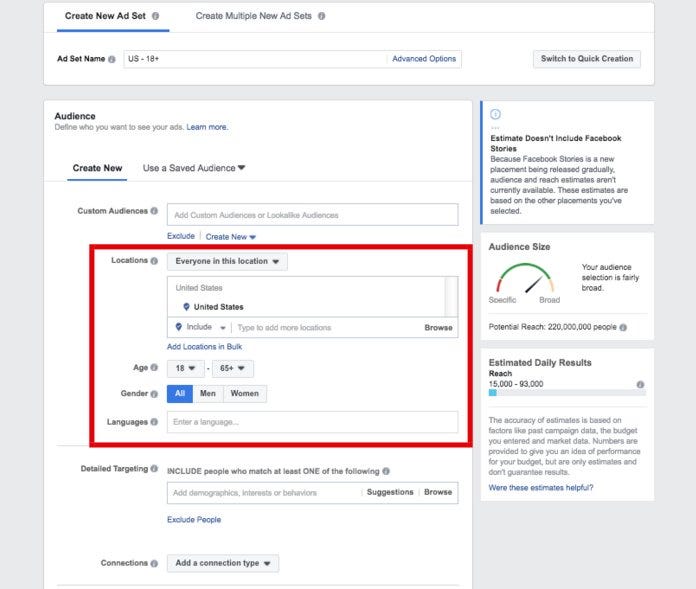
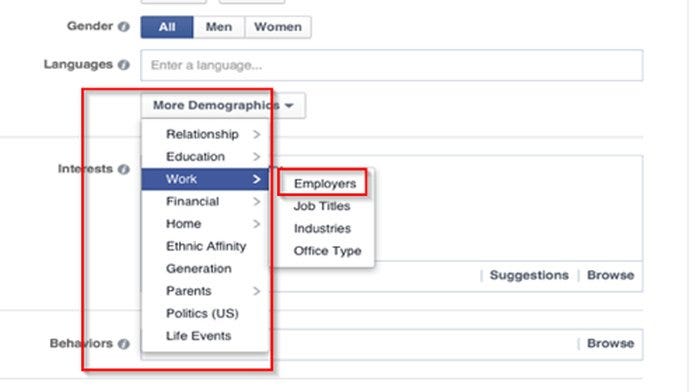
Targeted Ads are used for both commercial marketing as well as political advertising. Incorporating targeted advertising into your campaign can allow you to reach the right individuals with the appropriate messages.
What should my social-media strategy be? You need to be strategic with the content you create and publish on your political campaign page. Coordinate with your social media team to develop content that will mobilize your supporters to the actions and issues that are important.
Keep your content short, sweet, and visual. You don’t want to bore your audience or overwhelm them with information. If you have complex or in-depth topics to address consider “chunking” your messages down into a series of posts or graphics.
Publish content across all platforms and channels including your campaign website, Facebook, Instagram, YouTube, Twitter, Reddit, and elsewhere as appropriate.
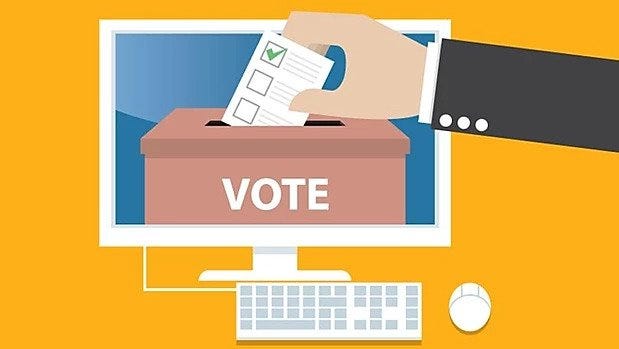
Make sure you add a strong call-to-action in all your social media content.
This can vary from asking supporters to subscribe to the channel, to registering to vote or adding their email to the email registration list.
Are they creating video content? Are they posting daily? What does their website look like compared to yours?
Scrutinize what your competitors are doing with their social media and online presence…
You should have a good idea of what your competitors are up to based on their social media accounts.
Whatever you do, never under any circumstance should you post negative or disparaging comments on your competitor’s social media accounts. Neither should you encourage supporters or peers to do the same.
It might be to your benefit and advantage to occasionally congratulate and show support with your competitors during the campaign and election!

In this polarized day and age of party politics, people still appreciate bipartisanship and mutual acts of respect across party lines.
Obviously, you should avoid the trolls and people who post comments meant to instigate conflict or compromise your public image as a candidate.
Focus on the goal, always!
![]()
LEARN MORE ABOUT HOW YOU CAN MAKE A DIFFERENCE IN YOUR COMMUNITY TODAY!

![]()


